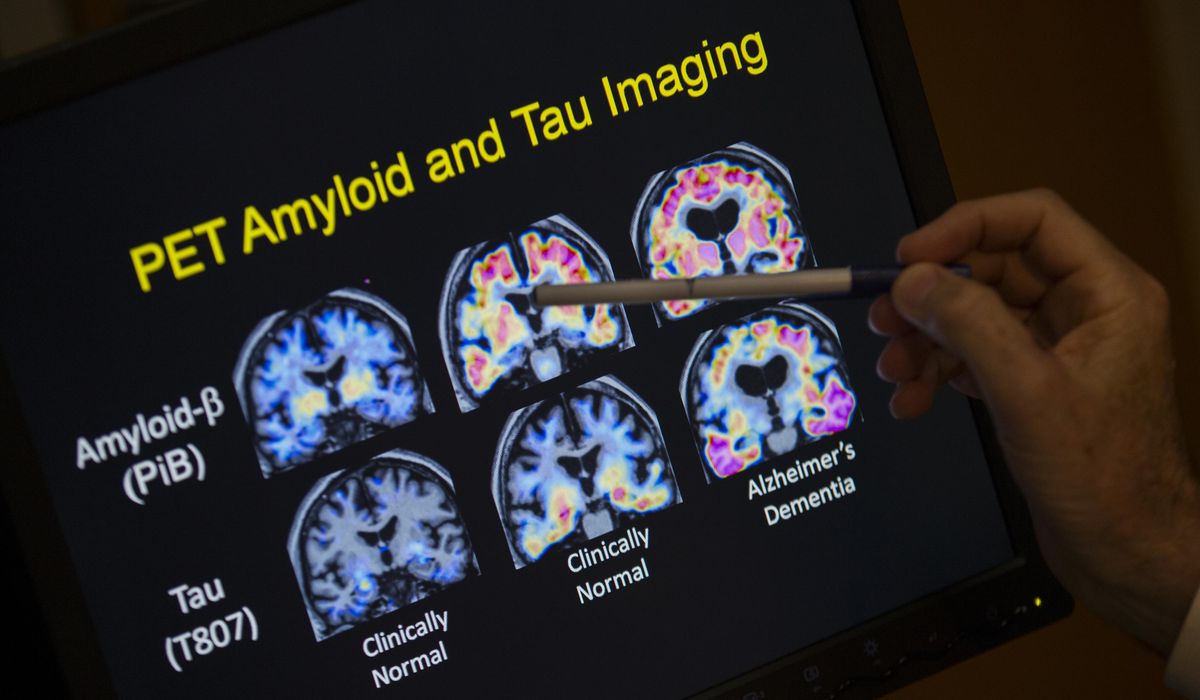
Scientists this week announced that a first-of-its-kind experimental vaccine to protect against Alzheimer’s disease has passed safety tests in human trials.
The drug candidate AADvac1, made by biotech company Axon Neuroscience, was shown to be safely tolerated by patients and produced high levels of immunoglobulin G (igG) antibody responses.
These antibody responses could possibly protect against harmful tau protein aggregations in the brain, a characteristic of Alzheimer’s disease, according to the study, published Monday in the journal Nature Aging.
The double-blind study involved 196 patients with Alzheimer’s disease, of whom 117 received the vaccine while the rest received a placebo in eight European countries from June 2016 to May 2017. The last safety visit took place in June 2019.
Only 100 study patients were left in the vaccine group and 63 in the placebo group after nearly 17% of participants dropped out. Participants assigned to receive AADvac1 took the drug in 11 doses administered over the course of the 24-month trial, called ADAMANT, and showed high levels of IgG antibodies.
The vaccine also produced a response against certain biomarkers of the disease in the phase-two clinical trial. The trial showed slower accumulation of a certain protein linked to the vaccine, meaning patients who received the drug might experience slower nerve degeneration than patients who received the placebo.
“To the extent of my knowledge, this is the first time that a tau-targeted immunotherapy showed clear evidence of impact on the neurodegenerative process and a strong indication of clinical effect in patients with a confirmed Alzheimer’s disease biomarker profile,” Petr Novak, a study author and the senior clinical research scientist at Axon Neuroscience, told MedPage Today.
Although the experimental vaccine was not linked to any significant adverse reactions, the therapy has not shown that it can significantly prevent cognitive decline for patients with Alzheimer’s disease.
The researchers, who hail from various institutions in Slovakia, Austria, Germany, California and other places, said that “no significant effects were found in cognitive and functional tests” for the whole study sample.
The small and early phase clinical trial primarily tested the vaccine’s safety. A larger study with more patients, including those with dementia tied to tau pathology specifically, is needed to see if AADvac1 can successfully treat cognitive decline, the researchers said.
However, there were some positive results for patients who took the experimental vaccine.
Among 109 patients who likely had both amyloid and tau biomarkers, AADvac1 treatment potentially slowed cognitive and functional decline by about 30% compared to those who received the placebo, based on evaluations of patients’ dementia rating and daily living activities. More research is needed to confirm these findings in future trials, the study authors noted.
The researchers plan on conducting a larger study in patients with tau and amyloid biomarkers to test the experimental vaccine later this year or in early 2022, MedPage Today reported. Amyloid proteins can destroy nerve cells.
Last week, the U.S. Food and Drug Administration approved the controversial new Alzheimer’s drug, aducanumab — the first in nearly two decades.
An estimated 5.8 million Americans aged 65 years or older had Alzheimer’s disease in 2020, according to the Centers for Disease Control and Prevention. This figure is projected to climb to 14 million by 2060.
Health, The New York Today




